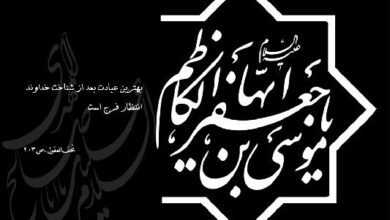Islam’s Savior Imam Hussain Ibn Ali As

Imam Hussain (as) the greatest leader of all the ages.
- Who was Imam Hussain (as)?
- Who was Yazid (la)?
- What led to the revolution of Karbala?
- How did the revolution work?
- The results of the revolution of Karbala.
- Lesson from Karbala.
- The philosophy of Grieg.
The life of Imam Hussain (AS) and His place in Islamic history are both impressive. In fact, it’s not because it’s hard to understand, but because it’s alive and important. About what He did. The list of His traits that follows is only a very short one.
He was one of Imam Ali’s (AS) sons and grandson of the Holy Prophet Muhammad (pbuh). His father, Imam Ali (AS), is already well-known. The least people knew about Him was that He was known by both His enemies and His fans. The Holy Prophet (pbuh) told everyone that He was the leader of the followers of truth. It goes without saying that He was smart, brave, loyal, close to the Prophet, fair, and religious.
Hazrat Fatimah Zahra (sa) was the only daughter of the Holy Prophet (p.b.u.t.) and He loved Her and the Her children more than any other In the world. AI-Turmudhi told Usamah ibn Zaid said that the HolyProphet (pbuh.) said,
“Fatimah is the most important person in my family to me.” The Prophet said that she was the most powerful woman in the whole world. She and Her husband were members of the family (Ahle Bait), and their jobs and traits were a sign of who they were.
They are examples of things that Muslim men and women can find in the light of virtue and truthfulness. Their job was similar to the Prophet’s in that they led the big religious and cultural changes from the dark culture of the non-believers to the bright culture and society of the believers.
Historians wrote that the birth of Hazrat Imam Hussain (as)was a big deal for the Muslims in Madina, especially for the Holy Prophet (pbuh). Even the name His child was given was as important to Him as “Imam Hussain.” When the Muslims heard the news, they praised each other on the new baby, whom the Holy Prophet(pbuh) thought of as his own son.
The Holy Prophet (pbuh)said, “Imam Hussain is of me, and I am of Imam Hussain.” “God be happy with those who please Imam Hussain.” This was not said by accident or because Imam Hussain was upset, as some people wrongly say. This was said by the wisest, perfect, and responsible leader, the Prophet of God, who never made a mistake while doing His job as a Prophet. He was delivering the Islamic Message and telling people who would be the future guardians of this Message.
The Holy Prophet of God (pbuh) said something else that makes it clear what part Imam Hasan and Imam Hussain play: “Hasan and Imam Hussain are the masters of youth in Paradise.” This was given to the Muslim people as proof that they could trust their leaders.
At a certain time, the Muslims in Madina could see and feel the glory and success of the Islamic Message. So they wanted to thank the Holy Prophet (pbuh) for all He had done to lead them. They gave the Prophet (pbuh) some gold that they had saved up as a gift. During this event, the following texts were shown to the Holy Prophet as his answer. “Say, ‘I don’t want anything in return for this except for you to be kind to your family'” (23/42).
AI-Kashaaf said that when this verse was revealed, people asked the Holy Prophet, “O Prophet of God, who are these relatives that this verse says we have to respect?” The Prophet said, “They are Ali, Fatimah, and their two sons.”
But this didn’t make me feel bad about other Muslims, His friends, or His family. If you look at the message of the verse with an open mind, it will first show that you don’t want to accept material rewards. If a gift wasn’t good enough, it can’t just be something material. So, the line was about showing respect to certain people, not because they are his cousins.
The real reason for this respect, though, was to keep the Islamic Message safe. Because of the important part, they played in Islamic history, they needed to be treated with respect in order to do their job.
Al-Hakim heard from Abu Saaid AI-Khidri that the Prophet said,
“God will put him in Hell if he doesn’t like us, the family.” This means people who don’t like the way Muslims act and live.
Jabir said that after the fast journey, the Holy Prophet(pbuh) gave a speech in which He said,
“O people, I am leaving the book of God and my family (Atrat) for guidance. If you stick to them, you will never go wrong.” This Hadees was told through trusted chains of narrators from about twenty different sources. Muslim used some of them in his book Sahih.
Abu Dhar also heard the Holy Prophet (pbuh)say, “O people, let my family be the head of your body and the eyes of your head.” This is a very interesting Hadees.
In many ways, the last few Ahadees are very powerful. First, they were told by people with different points of view, which gives them more weight. Second, the fact that they all have the same material shows how consistent the event is.
As was already said, Hazrat Imam Hussain (as) was a part of the Prophet’s family. He was raised under the direction of the Prophet, and the Prophet cared about Him directly in the best way. The family environment where Imam Hussain as grew up with His grandfather, father, mother, and older brother was the best ever.
So, Imam Hussain learned to be wise, kind, brave, religious, and to write. Imam Hussain held important jobs in the Islamic State when His father was in charge. During the Umayads’ reign of terror and corruption in the Muslim world, He was the only hope for the Muslims to revive the Islamic laws that would bring them peace, wealth, and happiness in both worlds. Imam Hussain never let the Muslims down. Instead, He did what a great spiritual leader should do and did His job as well as He could.
Who was Yazid?
Yazid was the son of Muawiya ibn Abu Sufyan, who was from the Quraish family of Umayyah. Abu Sufyan was the main enemy in the battle of the unbelievers against Islam. Hind, Muawiya’s mother, was so angry and cruel that she ate the liver of Hamza, the Prophet’s uncle.
Muawiya was another person who worked against Islam. In fact, Abu Sufyan’s family helped the infidels fight against the Muslims by making plans, giving money, and improving their spirits. Their hard work, money, and diplomatic skills did a lot to stop Arab people from becoming Muslim.
A long time passed, and all of a sudden, the Muslims surrounded Mecca with a huge army. The people who didn’t believe in Allah in Mecca were shocked by the Muslim troops who caught them off guard. So, the unbelievers had no choice but to give up their pride, which kept them from accepting that God was in charge. Scholars wrote down some strange stories about Abu Sofyan’s family at this time. But one thing is for sure: they didn’t want to become Muslims, and because of that, they were treated differently.
For example, they were given more money as a way to get them to accept Islam. But whether or not their selfish ways of thinking changed because of this kindness is a different question. In fact, nothing in their way of thinking or living changed as time went on.
Yazid grew up in a home where the deaths of people who had fought against Islam filled the air with strong feelings. Aside from seeing the Muslims who killed them get full respect and praise from everyone. Not to mention that the lost money hurt their pride and took away their family’s rights.
But Yazid had some things that made him stand out in a bad way. In his youth, people called him a “playboy.” Historians wrote that he was often drunk, cheated on his wife, and lived a very bad life in general. Some people even said that Yazid said,
“The Hashim family put on a play to get a kingdom, but there was neither news from God nor a vision.” Even if we got rid of this extreme, we would still have to deal with the rest of his shameful and horrible actions. Not to mention that it is against the law for him to say that he rules the Muslim World, misuses Muslim money, and interferes with people’s lives and honor.
What led to the Revolution?
There were many reasons for the change. Some were problems that people in general had, and others were based on ideas. The following stood out the most:
There were a lot of problems, but the most important one was that they tried to change Islamic ideas and concepts. This was a very important part of the situation, and it was in the thoughts of all serious Muslims at the time. Too often, people made up Hadith, which hurt the lives of Muslims in a big way. This gave the Umayyads a while to do their cruel things and follow their cruel rules.
They hid their actions that were not Islamic behind a mask of religion, which was a very bad idea. Long-term, this could have changed Islamic ideas about how to rule and turned social norms upside down. So, it was of the greatest importance to take off this mask and show the real picture of Umayad.
The State was built on a foundation that was not Islamic. Quraish was born to rule, Arabs were treated like second-class people, and non-Arabs made up the bottom of society. Under the Umayyads, that was the general social picture of the Muslim world. People didn’t have the freedom to think or say what they wanted. If someone tried to say something different from what the Umayyads thought, he went to jail, his property was stolen, and even his life was at risk.
The Umayyads thought that the Muslim world was their land. Aims (Zakat) and other Islamic dues were received, but no one knows where that money went and can’t ask. A few cruel rulers and tribe chiefs were given lots of money and gifts to keep them on their side. A lot of money was wasted on things like horse races, gaming, making wine, and buying slave women to entertain rich and powerful people. So, most Muslims were left close to death while the people in charge had all the social and material benefits.
As time went on, it seems that the Muslims got used to the Umayyads’ rule, which was not Islamic. Their fight started to weaken, and some people started to adapt to the new situation. So, the rebellious spirit of Islam slowly went away from the lives and ideas of Muslims. So, they needed a new way to wake up their minds and get their lives back on track so they could try to bring back Islamic behavior to society.
How the Revolution Worked
Hazrat Imam Hussain (as) left no question that He planned to fight against the Umayyad government. The speeches He gave in Mecca were all the same. Also, He gave His brother Muhammad ibn AI-Hanafia, who stayed in Madina, His will. In fact, that will be the official start of the change.
He wrote, “I’m not campaigning for people who don’t want to do what’s right or who want to hurt people. Instead, I’m trying to change my grandfather’s country. I want to encourage doing what’s right and discourage doing what’s wrong. If people accept my call to do what’s right, then God is the Master of righteous people. If people don’t accept my call, then I’ll stand firm until God passes His judgment. God is the best judge.”
During His journey to Karbala, He never stopped telling people to work for Islamic goals of social justice and government and to fight against behavior that was not in line with Islam.
In His speech at Karbala, He quoted the Prophet (pbuh.) saying “He who sees a cruel governor violating God’s law, breaking his covenant, acting in contrast to the Tradition of the Prophet, mischievous and suppressing people, then he does not try to change that ruler by action or speech; indeed God has promised with an appropriate place in Hell. “O people those Umayyads have pledged allegiance to the Devil and left God’s obedience.
They have spread crime, stopped following Islamic laws, and taken Muslims’ money for themselves. Besides making it illegal to do what is allowed and legal to do what is illegal.”
Imam Hussain’s (as) speeches were directly aimed at removing the religious mask from the Umayyad regime. He was introducing Himself to the people and explaining his message to the nation. IImam Hussain’s(as) personality and religious reputation were beyond question, so it’s not surprising that he was able to do such a big job when many important people were not willing to help.
The leader of this great revolution says He will die before he even starts the march, but He still makes all the necessary plans for His campaign.No question of the day has already been answered. We, the family of the Prophet, want to make God happy.
The way Imam Hussain (as) and His companions fought was a great example of bravery and honor. They were only 70 fighting men against thousands of the Umayyad’s Army. Even though they were outnumbered, the Umayyad’s Army used the most cruel and dishonorable ways to fight this small camp. They even stopped them from drinking water and kept them tortured in the hottest desert for three days.
The Results of the Revolution
What did Imam Hussain’s (as) movement mean in history? Some people don’t know why it happened to ask innocently about its effects, and others have asked if it was smart to attack a powerful force like the Umayyads, which ended up killing everyone.
Even though the reasons for the revolution have already been talked about, it’s time to take a quick look at how the Muslim World has changed since Imam Hussain’s (as) revolution.
The killing of Imam Hussain (as. ), the grandson of the Holy Prophet (p.b.u.h. ), shocked the whole Muslim world. This is not to mention the way He was killed or how His family was treated, who had the highest regard and respect of all Muslims.
As a result, all Muslims broke away from the Umayyad’s actions and policies. Who would want to be cursed with those who killed the So, the ideas that the Umayyads were spreading in order to change the goals of Islam were no longer taken seriously? So, the Umayyad’s plan to change Islamic ideas and concepts was stopped.
Imam Hussain’s(as) movement showed Muslims what they should do in such a situation in a very clear way. It had gone deep into people’s hearts and caused them a lot of pain when they didn’t do their Islamic tasks. This feeling, which hurt people all the time, turned into repentance and then into an open revolt against the Umayyad regime. The revolution gave their spirits a boost and set them in a dynamic movement. In fact, the Islamic movement was put into new gear for the rest of Islamic history.
Twabeen’s revolution happened right after the tragedy at Karbala. Another revolution at Madina tried to get rid of the corrupt Umayyad regime. Al-Mukhtar Al-Saqafi led another revolution that stormed the Umayyad regime in Iraq.
He was able to punish all of the main people who helped the campaign against Imam Hussain (as) in Iraq. Another result was Mitraf ibn Al-Mughira’s revolution against Ha The main cry of the people who fought against the Umayyads was “IImam Hussain’s Revolution.”
The Abasides came, but their behavior was soon shown to be different from what the family of the Prophet was advocating. They realized that the results of the revolution had been stolen, but before they could do anything, the main people who led the revolt were killed, poisoned, or put in jail. Attempts to restore Islamic behavior have never stopped in Islamic history. Bitter experiences and occasional material failures are natural parts of life.
Most important is that the Islamic spirit has won against intimidation and attempts to hide its shining face and glory. There has been a constant revolution in Muslim lives, which Islam’s enemies have not been able to stop. The secret key to this blessed revolution lies in the firm faith in God and the unshakeable conviction that material supremacy and gain are less important than God’s satisfaction.
Imam Hussain’s (as) revolution wasn’t just about changing the government. If that was the only goal, it wouldn’t be right to call it a revolution. Instead, Imam Hussain (as) wanted to change the social structure, economic and political structures, and remove foreign ideas that had crept into Muslims’ minds and thoughts. In other words, He wanted to change the way Muslims lived so that it was more in line with Islamic laws and ideals.
What We Can Learn from Imam Hussain’s Life?
Karbala is the worst tragedy that has ever happened to people. However, the shocking events in Karbala were like a powerful volcano that shook the very foundations of Muslims and woke them up, whether they were ignorant or learned. For sincere Muslims, Karbala turned into a triumph. The tragedy became a light to remind Muslims to practice Islam honestly and sincerely, to do what is right no matter what the consequences, and to not be afraid.
Yazid, on the other hand, never did what he and his father had planned to do. Within three years, Allah’s wrath fell on him, and he died at the age of 33. Within a few decades, the rule of Benu Umayya fell apart and ended.
The Philosophy of Grief and Wailing
Imam Hussain (as) is known as the “Master of the Martyrs” because He was not just the victim of an ambitious ruler. There is no doubt that the tragedy of Karbala when attributed to the killers, is a criminal and terrible act. However, when attributed to Imam Hussain (as), it represents a conscious confrontation and courageous resistance for a sacred cause.
The whole country didn’t stand up to Yazid. Instead, they gave in to him, and more and more people went back to their old ways before Islam.
In this situation, if Imam Hussain (as) had been passive, Islam as we know it would have ended. So Imam Hussain (as) took on the duty of the whole state. The saddest thing was that someone who stood up for the noblest cause, defending Islam, was killed in such a cruel way.
Because of this, the martyrdom of Imam Hussain (as) is remembered every year by Muslims all over the world. When we remember the tragedy, our sadness never goes away. Every year on the 10th of Muharram, we remember Ashura to remember the sacrifices made by the Holy Prophet’s family. It also reminds us of the people who tried to destroy Islam, the Holy Prophet’s family, and everything they stood for, as well as those who watched, listened, and did nothing.




